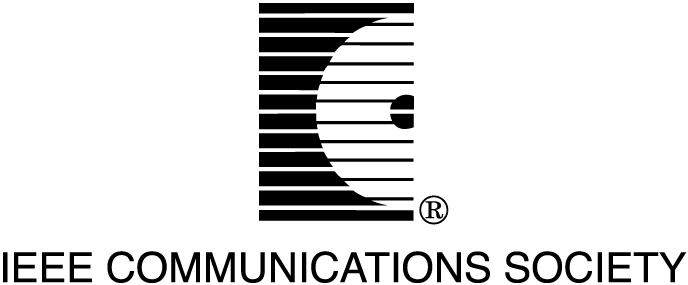Tutorial 1: Challenges of and Approaches to Hard - Soft Information Fusion
Monday, March 3rd, 2014, 9:00 - 12:30 am, Guadalajara Room
James Llinas
|
Rakesh Nagi
|
Geoff Gross
|
TUTORIAL OVERVIEW: : This tutorial will first review the state of the art in both high-level and hard and soft information fusion, reflecting the capabilities and issues still facing the modern IF community. The remainder of the tutorial will discuss (a few demos will be included) the various challenges, issues, and approaches being studied by the IF community to deal with these considerable complexities. Impacts of this problem space on each of the fundamental IF functions of Common Referencing, Data Association, and State Estimation will be discussed, along with various current algorithmic techniques in each area. The tutorial materials derive largely from the author’s involvement in and leadership of a major Army grant on Networked Hard and Soft Fusion.Tutorial Outline:
State of the art Review
Motivation, and the Modern Problem Space
Second order uncertainty and imprecise probabilities
Framing a Hard and Soft Fusion Architecture
Data Association
State Estimation
LEAD INSTRUCTOR BIOGRAPHY: : Dr. James Llinas is an Emeritus Professor in the Departments of Industrial and Systems Engineering and also dual-appointed in the Department of Electrical Engineering at the State University of New York at Buffalo, in Buffalo, New York, USA. He has been a Professor at the University for approximately 24 years after a long career both as a manager and senior scientist at various defense and intelligence research companies in the USA. Dr. Llinas brings over 35 years of experience in multisource information processing and data fusion technology to his research, teaching, and business development activities. He is an internationally recognized expert in sensor, data, and information fusion, co-authored the first integrated book on Multisensor Data Fusion, and has lectured internationally for over 30 years on this topic. In addition to this original book, Dr. Llinas is also the co-editor of the “Handbook of Multisensor Data Fusion” published in 2001, a second edition in 2009, and of a new book on Distributed Fusion for Network Centric Operations, published in 2012. Dr. Llinas has been a Principal Investigator of the Army Research Office $7M Program on Unified Research on Network-based Hard/Soft Information Fusion for the last four years; this program will continue into 2014.
Tutorial 2: Designing for Situation Awareness in Virtual Environments
Monday, March 3rd, 2014, 9:00 - 12:30 am, Tampico Room
Amanda Bond
|
Matthew Johnston Emerging Markets & Technologies, Design Interactive, Inc
Joseph LaViola University of Central Florida, USA
TUTORIAL OVERVIEW: : The tutorial will address the theoretical foundations and measurement metrics supporting Primary Egocentric Reference Frame (PERF) formation and Situation Awareness (SA) within human-machine interfaces, specifically immersive virtual environments. Metrics specific to workload, fatigue (e.g., myographic sensors), time on task, and ecological assessment will be discussed. Additional technologies including Leap, Kinect, eye-tracking, joysticks, etc. will also be addressed.
LEAD INSTRUCTOR BIOGRAPHY: Amanda J. H. (Hafich) Bond is a Senior Research Associate at Design Interactive, Inc. Amanda has 10 years' experience in the Human Factors field with experience across numerous Department of Defense and commercial applications. Her background includes task analysis, training situation analyses, training effectiveness evaluations, usability evaluations, research studies, domain analyses, and cognitive task analyses, as well as designing human-machine systems. Amanda is the technical lead for the development of an Ecological Gesturing Ontology development program for the Air Force Research Laboratory, enhancing situational awareness through virtual environment Human-Computer Interaction. She comes to DI after working for several years as the lead Human Sciences Designer for the Tactical Ground Reporting (TIGR) program for the United States Army, which then-Army Vice Chief of Staff GEN Chiarelli said “forever changed our Army.” Amanda has a B.S. in Psychology from Florida State University, an M.S. in Modeling and Simulation (Human Systems) from the University of Central Florida, and is currently working on her dissertation for completion of her Ph.D., also in Modeling and Simulation (Human Systems) from the University of Central Florida.
Tutorial 3: Introduction to Social Network Analysis
Monday, March 3rd, 2014, 1:30- 5:00 pm, Guadalajara Room
Pontus Svenson
|
TUTORIAL OVERVIEW: :Social network analysis (SNA) is a set of powerful techniques to identify social roles, important groups and hidden structures in organizations and groups. The methodology assumes that the ways the members of a group can and do communicate with each other are correlated with important properties of that group. This tutorial will give an introduction to social network analysis and complex networks and show some examples of recently developed methods. Brief descriptions of some of the freely available tools for analyzing social networks will be given. Applications for how SNA can contribute to situation and threat analysis, including forensic analysis, will be discussed.
INSTRUCTOR BIOGRAPHY: Pontus Svenson is a Deputy Research Director at FOI, the Swedish Defense Research Agency, where he is also deputy head of the Decision Support Systems department. He has MS and PhD degrees in Theoretical physics from Chalmers University of Technology. He has worked on information fusion and decision support systems since 2001, has co-authored about a 100 papers and technical reports, and is a member of the editorial board of the Information Fusion journal. He first encountered the area of complex networks while a PhD student and has contributed to 13 papers on social network analysis. His most recent research in social network analysis dealt with constructing and analyzing uncertain networks and with the use of methods from finite automata theory to produce abstract views of social networks. He has lectured on decision support systems and fusion at the Swedish National Defence College as well as at the University of Skövde and on social network analysis at Chalmers University of Technology. He is responsible for the course on Sensor data and information fusion for crisis management course within the Forum Securitatis postgraduate school at Linköping University and in 2006 gave a course on Information fusion at the ELSNET summer school. He has given tutorials on Social network analysis and complex networks (2007) and Distributed fusion (2008, joint with Martin Holmberg) at the Information Fusion conference.
Tutorial 4: Threat Assessment with Technical Intelligence Applications
Monday, March 3rd, 2014, 1:30- 5:00 pm, Tampico Room
Alan N. Steinberg
|
TUTORIAL OVERVIEW: : This tutorial describes the fundamental concepts of situation and threat assessment and applies them to problems in Technical Intelligence. Technical Intelligence concerns the assessment and prediction of foreign capabilities that can pose threats to national security threats. The approach, which has been implemented in real systems, systematically combines factors for capability, opportunity and intent. Capability, Opportunity and Intent factors are combined to project future Technology Readiness Levels (TRL) milestones for given Capability Levels. Data fusion, human behavior modeling, generalized belief networks, structural equation modeling and deep learning methods are discussed. Unclassified applications will be addressed.
INSTRUCTOR BIOGRAPHY: Alan Steinberg is recognized internationally as one of the world's leading experts sensor data fusion, with over 35 years' experience as a designer, developer and operational user of multi-sensor targeting, electronic combat and intelligence systems. He is a long-time member of the JDL Fusion Group, for which he revised the well-known JDL Fusion Model. He received the prestigious Mignona Award for outstanding achievement in data fusion in 2003. He has served on several blue-ribbon panels for the U.S. Government to evaluate and recommend technology development and the restructuring of the Intelligence Enterprise. He conducted a 2008 study in the state-of-the-art in Automatic Target Recognition. Technology studies in Air and Missile Multi-Sensor Data Fusion, and various advanced sensing and signal processing techniques. He has developed advanced techniques for Situational and Threat Assessment in technical and operational intelligence applications. He is the author of "Foundation of Situational and Threat Assessment", Handbook of Multisensor Data Fusion (Liggins, Hall & Llinas, eds), 2009. He developed advanced multi-sensor fusion techniques and systems for a great variety of tactical military, intelligence and commercial applications. He has served as a U.S. representative to NATO Research Technology Organization and NATO Advanced Study Institute activities.. Currently, he is Principal Research Scientist, Georgia Tech Research Institute. He has give courses, seminars and workshops, as well as technical support to fusion and integrated sensing developments in the US, Europe, Australia, Asia and Africa.




